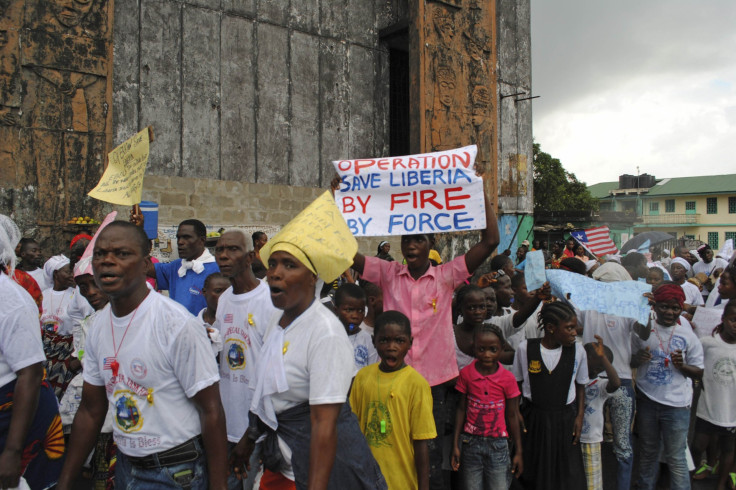Kaci Hickox: Meet the Nurse Speaking Out Against Ebola Quarantine

Kaci Hickox, a nurse who traveled to Sierra Leone to care for Ebola-stricken children, watched her patients die alone from an epidemic that has claimed as many as 15,000 people so far. She is now speaking out against her treatment upon arrival in the U.S., as the first person to face a new quarantine policy, and calling for more "humanity" toward health care workers returning from the front lines of the crisis.
The Dallas Morning News Saturday published Hickox's scathing account of her experiences at Newark Liberty International Airport on Friday.
"I am scared about how health care workers will be treated at airports when they declare that they have been fighting Ebola in West Africa," wrote Hickox, who was traveling with the group Doctors Without Borders. "I am scared that, like me, they will arrive and see a frenzy of disorganization, fear and, most frightening, quarantine."
New York Gov. Andrew Cuomo and New Jersey Gov. Chris Christie announced a mandatory quarantine Friday for those who'd been in direct contact with Ebola patients in Guinea, Liberia and Sierra Leone, the epicenter of the outbreak. The policy came in response to the diagnosis of New York City's first Ebola patient, Dr. Craig Spencer who had also joined the ranks of Doctors Without Borders in West Africa. But some health experts are worried the quarantine measures will keep medical professionals from journeying abroad to help combat the disease.
Hickox appears concerned about that, too. Following a two-day journey from Sierra Leone, she landed in Newark around 1 p.m. She described feeling hungry and thirsty, and being left alone for hours with no explanation, between rounds of questioning and having her temperature taken with a forehead scanner.
When an officer informed Hickox she had a fever of 101, the nurse countered that "an oral thermometer would be more accurate" and her temperature reading was elevated because she was "flushed and upset."
Eventually, an eight-car police escort, with sirens and flashing lights, took Hickox to Newark's University Hospital, where she was placed in a tent outside the building. It was there her temperatue read a normal 98.6 and she tested negative for Ebola.
"I sat alone in the isolation tent and thought of many colleagues who will return home to America and face the same ordeal," Hickox wrote. "Will they be made to feel like criminals and prisoners?"
© Copyright IBTimes 2024. All rights reserved.





















